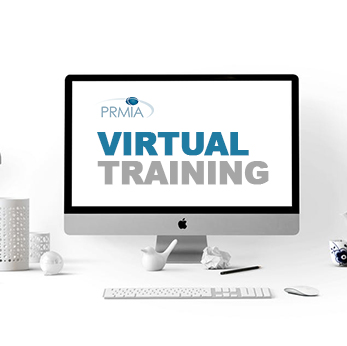Implementing Operational Risk within an ERM Framework

Sound management of operational risk is an integral part of strong Governance, Risk and Compliance (GRC) and Enterprise Risk Management. In this session, we will define operational risk and explain how to identify, quantify, manage, and control it. We will discuss why all employees must be cognizant of these risks in their day to day jobs and how an organization can better manage and control these risks that have resulted in the failure of several high profile firms and significant losses and unwanted press at others. We will also review and discuss the building blocks and key players in implementing an effective ORM program that is integrated into the Enterprise Risk Management framework.
Presented by Mario Mosse
Wednesday, May 2, 2018
24-hour on-demand access begins at 12:00 am ET
Session length: 90 minutes
About This Course:
Over the past 20 years, financial institutions have suffered significant losses that were not attributable to market or credit risk; risks that are normally well managed and controlled. Rather, they were incurred due to poor control over all other enterprise risks that are inherent in the day to day operations of the business and known as Operational Risks.
Banks, investment firms, insurance companies and other financial institutions need to have a robust and effective operational risk management strategy, which is well integrated into the ERM framework. They also must understand the regulatory and risk mitigation needs of the current environment in order to protect consumer assets as well as their own operations from various operational risks. The financial services industry must raise the bar on operational risk management given the evolving market environment and the increased internal and external pressure for financial services institutions to be operationally sound and meet compliance requirements.
Attending this training course will enable you to understand how operational risks can be better managed and what strategies actually work in the wake of ineffective management systems coming to light given recent events in the marketplace. This Operational Risk webinar is tailored to equip you with high level knowledge and understanding of today’s operational risk challenges and effective strategies to deal with them.
Areas to be covered during this session:
• What is GRC, ERM and ORM
• What are Operational Risks, how are they identified, and where are they found
• Risk and Control Self-Assessment Process (RCSA)
• How are operational risks quantified
• Key Risk Indicators
• Scenario Analysis
• Operational Risk Incidents
• Capital Calculation
• How are operational risks managed and reported
• The Risk Profile Report
Who Should Attend:
Banks; Asset Managers; Broker/Dealers; Insurance Companies and all other financial institutions; Supervisors; Financial Officers; IT professionals; Risk Officers; Internal Auditors; Operational Risk Managers; Compliance Officers; Board members; General (legal) counsel; Regulators who supervise or examine banks or financial institutions; C-Suite members; CBAs (Chartered Bank Auditors); CIAs (Certified Internal Auditors); CFEs (Certified Fraud Examiners); Team members who have an interest in expanding their knowledge of Enterprise Risk Management.
How It Works:
This course will be available for a 24-hour period on the starting date and time published, to accommodate your schedule and time zone. During the session you will have the opportunity to submit questions to Mario. He will prepare a customized response to you within 72-business hours. Questions must be submitted during the 24-hour open course period. Included in your purchase is access to the recording for 60 days following the original course date and a PDF of the course handouts.
Registration Fee:
Sustaining Member $89 |Contributing Member $99 |Non-Member $109
About Our Expert:
Mario Mosse is the President of MMosse Consulting, LLC, a company that provides risk management advice and training to the financial services industry. Mosse has significant experience in the areas of enterprise risk management, regulatory compliance, internal audit and project management at major financial services companies. He also has extensive knowledge of U.S. and international financial services and products (retail and corporate banking, securities brokerage, investment banking, asset management and life insurance) as well as risk management and internal control frameworks such as Basel III, Solvency II and COSO.
Mosse spent 18 years with Prudential Financial, Inc. where he was in charge of the company’s operational risk management program. Prior to that, he was the Chief Internal Control Officer for Prudential Securities and Vice President, Management internal Control of Prudential Investments. Prior to joining Prudential, Mosse spent 19 years with The Chase Manhattan Bank, N.A. where he was in charge of risk management and compliance for the Corporate Finance Sector, South America Regional Audit Executive, and Vice President, General Auditing.

Continuing Risk Learning Credits: 1
PRMIA Continuing Risk Learning (CRL) programs provide you with the opportunity to formally recognize your professional development, documenting your evolution as a risk professional. Employers can see that you are not static, making you a highly valued, dynamic, and desirable employee. The CRL program is open to all Contributing, Sustaining, and Risk Leader members, providing a convenient and easily accessible way to submit, manage, track and document your activities online through the PRMIA CRL Center. To request CRL credits, please email [email protected].